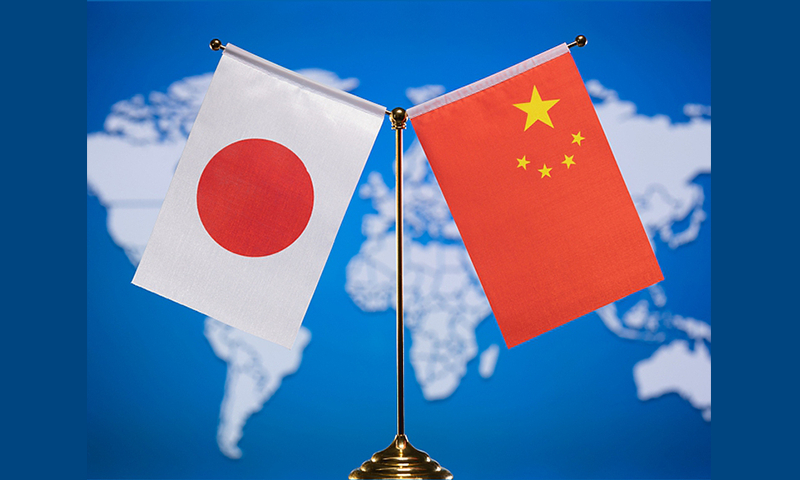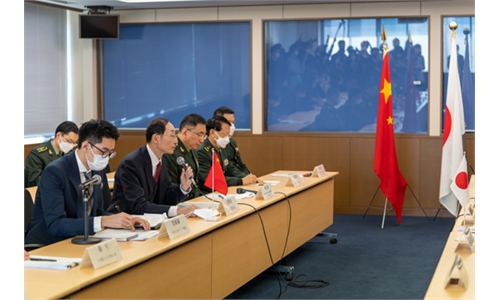China-Japan security dialogue could play a more positive role, but only when Japan restrains anti-China strategy: expert

Photo: VCG
Chinese Vice Foreign Minister Sun Weidong held the 17th China-Japan security dialogue and the 29th regular diplomatic consultation with Japanese Senior Deputy Minister for Foreign Affairs Shigeo Yamada on Wednesday in Tokyo.
Japanese media outlets said that the two countries had agreed to strengthen dialogue between senior security officials. Chinese experts stressed that the dialogue could play a more positive role in cushioning geopolitical tensions in Northeast Asia, but only when Japan restrains its strategy of containing China.
The dialogue comes amid Japan's moves to scale up its defense forces, the industrial high-tech blockade against China, which includes semiconductors, and more provocative statements related to the Taiwan question.
In a statement released after the meeting, Japan's foreign ministry said it had stressed the importance of peace and stability in the Taiwan Straits. The two countries had agreed to try and establish a direct communication hotline "around spring," and to strengthen dialogue between their senior security officials, it added.
To prevent differences and conflicts between China and Japan evolving into confrontation and to avoid greater harm to each other, it is of practical significance for the two sides to launch a dialogue on security, experts said.
The security dialogue covered a lot of problems, but there are no concrete solutions, Da Zhigang, director of the Institute of Northeast Asian Studies at Heilongjiang Provincial Academy of Social Sciences, told the Global Times on Wednesday. But only by understanding what Japan wants from the dialogue can China better explore ways to manage its differences with Japan. At the same time, through the dialogue, China can convey to the Japanese side its demands and bottom lines, Da noted.
According to NHK, Yamada stressed the importance of continuing bilateral dialogue during the meeting. He said there is a common understanding between the two countries' leaders of the need to build constructive and stable bilateral relations.
Sun said the two sides should implement the important political consensus of "being partners and posing no threat to each other."
Security cooperation between China and Japan actually goes beyond China-Japan relations, experts said. However, the complex historical and current conflicts between China and Japan cannot be completely resolved through a single dialogue, and Japan's strategic efforts to contain China will not be easily changed, and the future development of China-Japan relations will have twists and turns for sure, Da warned.
When dealing with its relations with China, Japan should not be completely "controlled" by the strategy of containing China, but should show flexibility, Da noted.
It is hoped that this dialogue will not be a temporary speculative move by Japan, but one that can achieve relatively long-term results, as it is in the interests of the well-being and livelihoods of the Japanese economic and business communities and people, experts said.


